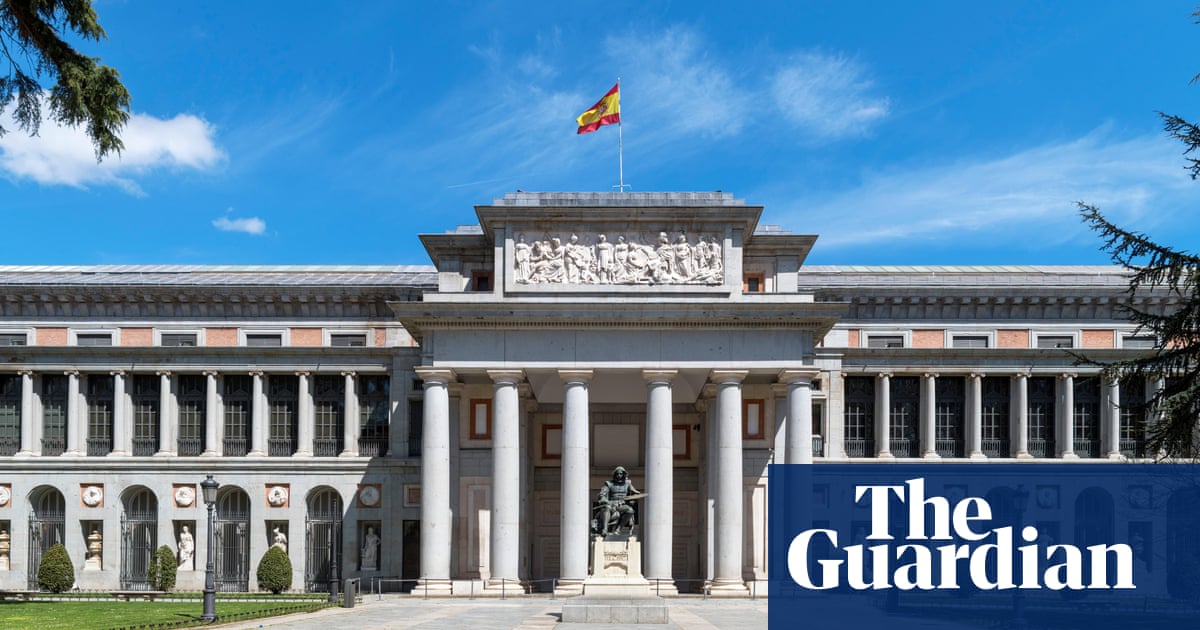
Spain’s socialist-led coalition government has announced a review of state-run museums to enable them to “move past a colonial framing” of people and the past, and has pledged to fight against political meddling and censorship of the arts.
Ernest Urtasun, a member of the leftwing Sumar platform who was appointed culture minister last November, told MPs he was committed to “guaranteeing the effective exercise of cultural rights throughout Spain” and ensuring that creative institutions engaged with society and the wider world.
“As you know, museums are living organisms that respond to the issues and debates of the times,” he told the congressional culture committee on Monday.
“With that in mind, one of the challenges we’re proposing … is the establishment of spaces for dialogue and exchange that will allow us to move past a colonial framing or one rooted in old gender or ethnocentric habits that have so often damaged how we see heritage, history and artistic legacies.”
Urtasun said such considerations had already been incorporated into the programmes of the National Anthropological museum and the Museum of America, adding: “We’re working to recognise and draw attention to the perspectives of the communities and the memory of the peoples from whom these works on display came.”
The minister also signalled a determination to tackle growing attempts to censor art for political ends, saying his department would stand with any creator, artist or collective whose work had been erased or censored.
“Protecting culture and understanding its relevance in building an equal society means protecting democracy, fundamental rights and freedoms and the welfare state,” said Urtasun.
The conservative People’s party (PP) and the far-right Vox party have been accused of politically motivated censorship and stoking culture wars in recent months after a series of events was cancelled on ideological grounds.
In July last year, the PP-Vox council of the northern Spanish town of Bezana apparently cancelled a screening of the Toy Story spin-off film Lightyear because it features a kiss between two women – a scene that led to the movie being banned in Saudi Arabia. Vox has also been accused of vetoing a theatrical adaptation of Virginia Woolf’s time-travelling, gender-shifting classic Orlando because its protagonist “goes from being a man to a woman”.
In December last year, Vox succeeded in its attempt to scrap a 23-year-old annual cultural festival in the north-eastern city of Huesca by threatening to scupper the upcoming budget proposed by the PP-run city council. Vox had argued that last year’s Periferias festival – which was dedicated to Gypsy culture – was a waste of money that “serves only to shower arty-farty trendy lefties with thousands of euros”.
Opposition MPs took exception to being called censors and to what they saw as Urtasun’s revisionist, partisan and politically correct approach to culture and Spain’s imperial past.
“You accuse us of censorship when you – the ‘woke’ left – are the champions when it comes to censorship,” Vox’s culture spokesperson, Joaquín Robles, told the minister. “If anyone deviates from the ideological path you defend, they’re immediately considered an outcast.”
Robles also accused Urtasun of comparing Spain’s imperial activities to Belgium’s atrocities in the Congo and of falling victim to the centuries of anti-Spanish and anti-Catholic propaganda known as the Black Legend. He suggested Spain had been beneficent by comparison and insisted it had not possessed colonies in Latin America, but rather viceroyalties.
“Do you know how many universities Spain founded in Spanish America?” he asked. “More than 27! What about all the cathedrals? The people who lived there had the same rights that the Spanish had in the viceroyalties. Spain never had colonies. That’s part of the Black Legend that you manifestly appeared to have internalised.”
The PP’s culture spokesman, Borja Sémper, warned Urtasun against allowing politics to permeate his ministry, duties and policies.
“Don’t be an ideological bureaucrat and don’t become a political activist in your important ministry,” he said. “You need to share a vision of culture in Spain that is open, plural and modern … If you pursue the dangerous idea of wrapping culture in a leftwing flag, you’ll be excluding an important part of Spanish society from the love and understanding from culture, and, of course, from the policies that are needed to promote culture.”












